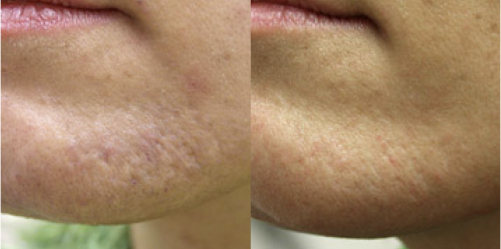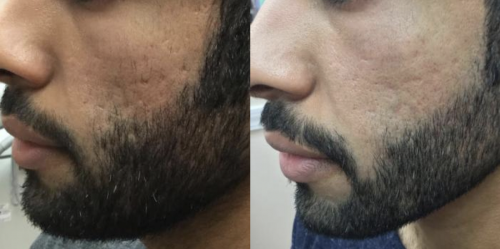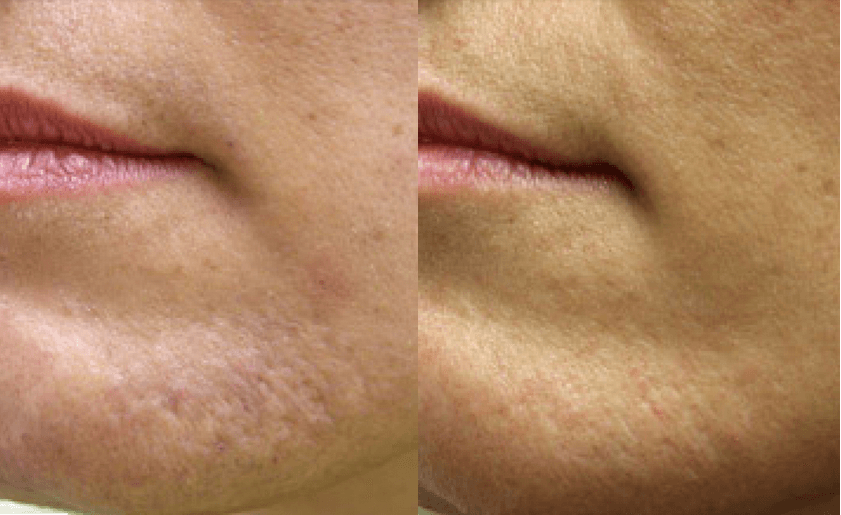Acne Scars
Breakouts and pimples are frustrating as it is, but many people continue to struggle with the aftermath of acne in the form of scarring. The more severe your acne is, the more likely it is to leave scars. Many people eventually outgrow their acne but have lifelong scars that mar their complexion. These scars can be difficult or even impossible to treat on your own, which is why the Langdon Center offers multiple effective treatment options for acne and scarring.
What Causes Acne Scarring?
There are several types of acne, from minor blackheads to painful cysts. Moderate to severe acne breakouts can damage the deeper layers of your skin, leaving scars. Acne results when your pores are clogged with oil, debris, or dead skin cells. Scarring is more likely to occur if you pick at or pop pimples.
Taking good care of your skin and treating active acne is the best way to prevent scars. As a board-certified dermatologist, Dr. Langdon can help you manage acne with medical-grade skincare products and facial treatments.
Frequently Asked Questions
*Individual results may vary.
Acne scar treatment results.
Take the next step.
To learn more about acne scars or to schedule your consultation with Board-Certified Cosmetic Surgeon and Dermatologist Dr. Langdon, please fill out the form on this page or call The Langdon Center at (203) 453-8625. We look forward to working with you! The Langdon Center serves patients in the Guilford & New Haven, CT areas.


